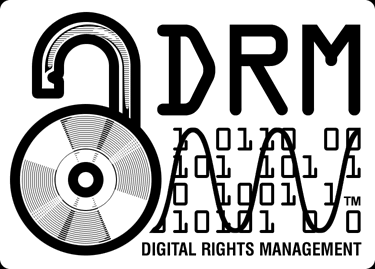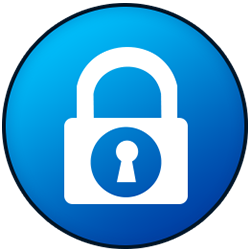What is DRM?

DRM stands for Digital Rights Management. That is tech-speak, but in layman’s terms, it means your electronic content is protected from it being shared or ‘pirated’ over the internet without your consent or knowledge. Having DRM on your content restricts access to copying, editing, and printing.
This can give digital content creators (musicians, authors, publishers) a bit of security and keep a tighter rein and more control on their works. As with anything else, there are varied opinions about how it works, the real security of it, and whether it’s a good thing or bad thing.
But, let’s step back and take a quick look at some of its history.
History
The idea of having digital content protected at the source has been around since the old ‘floppy disks’ (I hope I didn’t date myself there). From the floppy disks, the process extended to music CDs. This is where most of the controversy was thrust into the public spotlight, and where the music sharing company, Napster, was brought under heavy scrutiny. Many musical artists protested and sued Napster over the music being shared to listeners for free through mp3 files. This was a matter of the bottom line, money, and well totally justified, but more importantly, it was about the overall violation and disregard of copyright and ownership of the content.
The music industry was the first to take the hit from peer-to-peer file sharing, and from their experience and mistakes, the movie industry learned a lot and began to lace their DVDs with the code to prevent movies from being copied and shared endlessly. An owner of a DVD can legally make a copy for his or her own use, but this ability is limited by the digital management code in the disk. Music CDs were soon equipped with a similar protection to help cut the piracy and in an attempt to preserve copyright and keep the musicians from losing money.
The new player on the market is now the booming business of ebooks, and with that, it brings about the same issues that the above mentioned industries faced. Authors and publishers, the creators of ebooks, are now in the position of protecting their craft and hard work – leading back to the biggest protector, DRM.
Here, I will be speaking about eBooks. First, in uploading your content to a retailer (Amazon, Apple, Kobo, BnN) you may or may not be given the option to apply DRM to your content. Once you are at that point in uploading your book you have to make a decision about protecting it.
To me, it’s a matter of personal preference and what your expectations may be. Piracy runs rampant on the inter-webs, and realistically there is no good way to stop it. ‘If it can be taken for free, it will be.’ That’s the unfortunate truth.
With that said, let’s say you are releasing a free ebook. In that case, DRM might be a mute point. I say that because in a strange way, if you are putting something up for free, your content will more than likely be downloaded many times online, creating pub and exposure for you, your writing style, and your book. If putting it up for free, with the notion that word will spread about your product, then DRM-free might be the way to go. The only problem with that is, as piracy goes, there are some websites taking free works and then selling them on their site with no pay out to the author. Here is a very interesting post about this issue written by Y. Correa.
Another thing to consider is that is some circles, there have been reports of consumers having trouble using DRM content. I don’t know how true this is or what the percentages are, but if you are on the fence, you may want to look into these potential problems before you decide.
Not having DRM on a bestseller might not have a significant effect on sales if it is already at that level, and in the case of J.K. Rowling, she moved into the ebook market being DRM free. Piracy was always something Rowling has had to deal with, especially early on. Her thought in going DRM free was that she might build an audience of pirate readers and convert them into paying customers. But, very few have J.K. Rowling’s clout to pull that off.
For my ebooks, I do not use DRM when going through the retailers, unless they require it on their end. If there is a chance that a consumer might have a technical issue that may reflect negatively on my product, then I try to avoid it if possible. I want my reader’s experience to be the best it can be.
This all can seem very confusing, so I tried to give a little background on this ongoing topic of discussion in the internet community. There is no right or wrong way, and honestly, if a consumer really wants to buy your content, I don’t think DRM will sway them one way or the other.
The good news is that if you are asking this particular question, then it must mean you have completed your hard work and are ready to send it out to the masses. To that I say…Congrats!!


I’m truly enjoying the design aand layout of your website.
It’sa very easy on the eyes which maks it much more enjoyable forr me to come here and visit more often. Didd you
hire out a developer tto create your theme?
Outstsnding work!
I am tuly grateful to the holder of this website who has shared this
fantastic post at here.